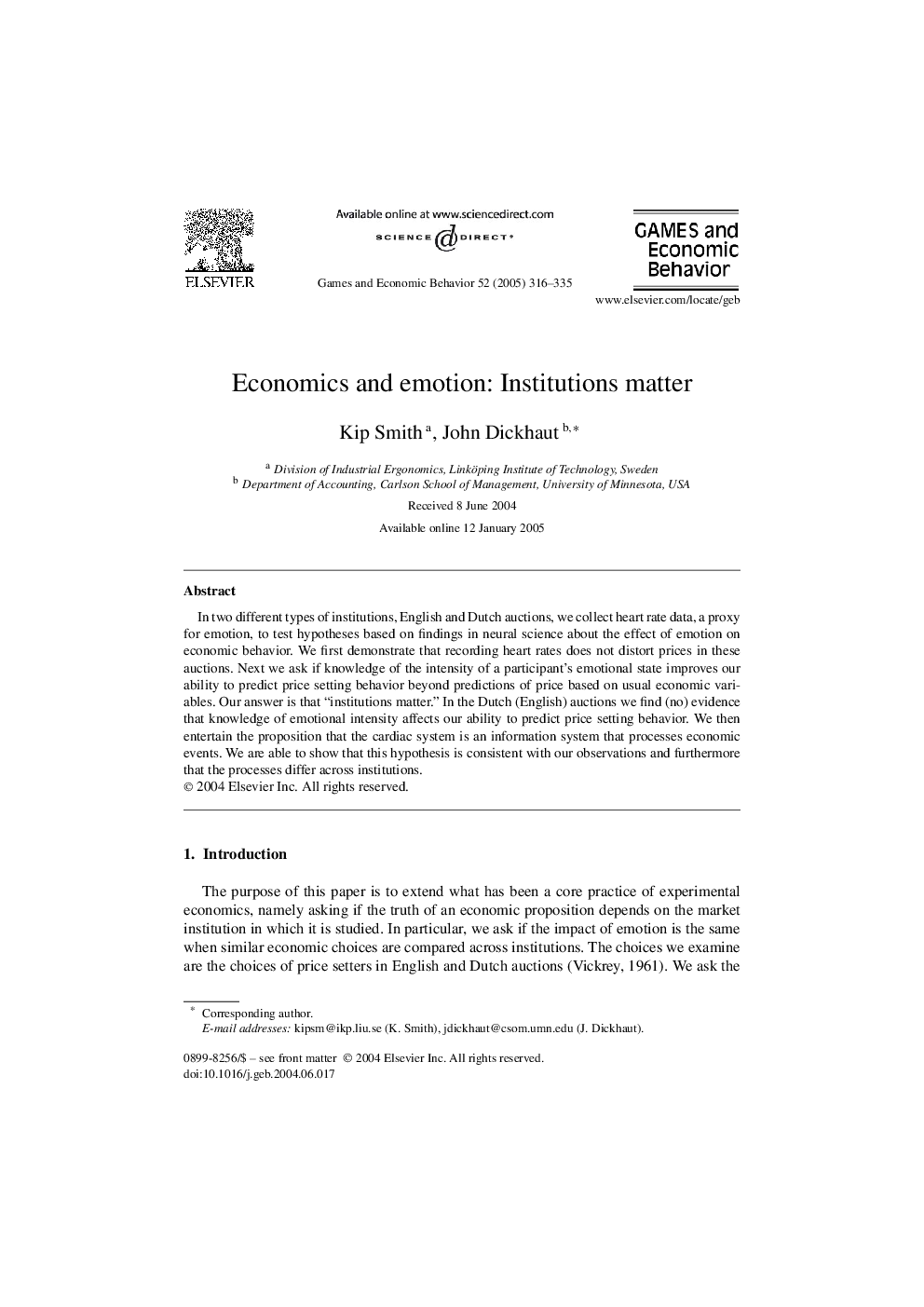| Article ID | Journal | Published Year | Pages | File Type |
|---|---|---|---|---|
| 9551687 | Games and Economic Behavior | 2005 | 20 Pages |
Abstract
In two different types of institutions, English and Dutch auctions, we collect heart rate data, a proxy for emotion, to test hypotheses based on findings in neural science about the effect of emotion on economic behavior. We first demonstrate that recording heart rates does not distort prices in these auctions. Next we ask if knowledge of the intensity of a participant's emotional state improves our ability to predict price setting behavior beyond predictions of price based on usual economic variables. Our answer is that “institutions matter.” In the Dutch (English) auctions we find (no) evidence that knowledge of emotional intensity affects our ability to predict price setting behavior. We then entertain the proposition that the cardiac system is an information system that processes economic events. We are able to show that this hypothesis is consistent with our observations and furthermore that the processes differ across institutions.
Related Topics
Social Sciences and Humanities
Economics, Econometrics and Finance
Economics and Econometrics
Authors
Kip Smith, John Dickhaut,
